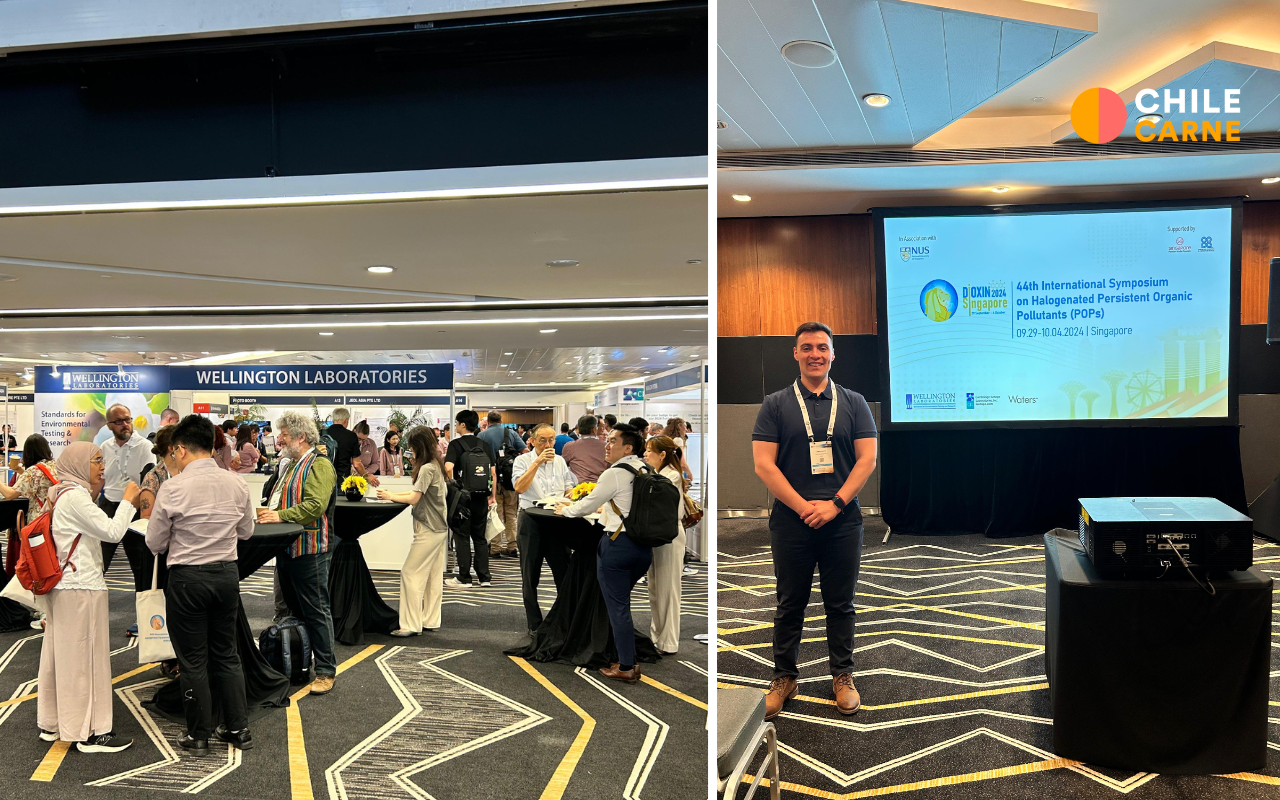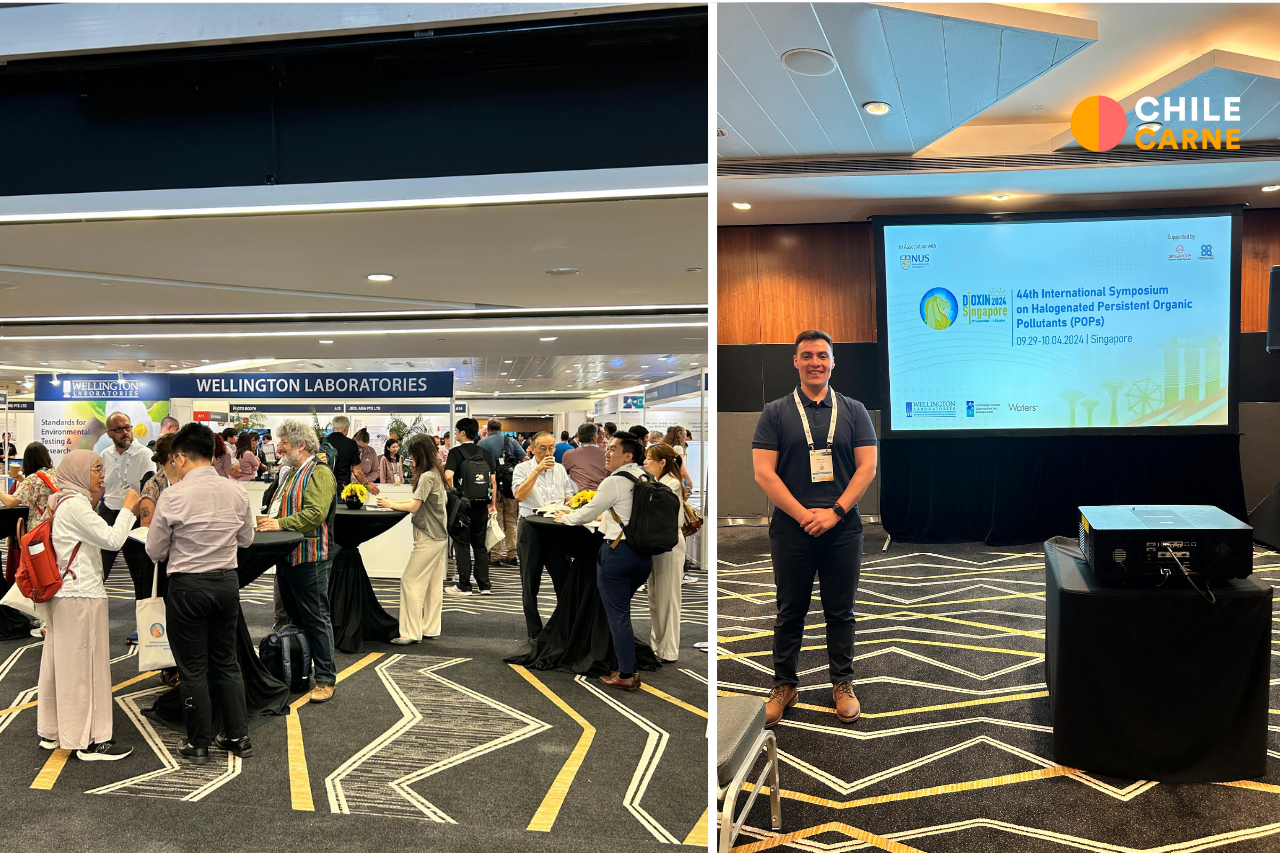
Singapore hosted the International Symposium on Persistent Organic Pollutants, which brought together more than 500 participants from all over the world
As part of the industry’s dioxin program, ChileCarne participated in the 44th International Symposium on Halogenated Persistent Organic Pollutants (POPs), held in Singapore from September 29 to October 4, 2024. This prestigious event brought together more than 500 experts from various fields, including academics, food safety authorities, testing laboratories, and industry representatives, to address the […]

As part of the industry’s dioxin program, ChileCarne participated in the 44th International Symposium on Halogenated Persistent Organic Pollutants (POPs), held in Singapore from September 29 to October 4, 2024.
This prestigious event brought together more than 500 experts from various fields, including academics, food safety authorities, testing laboratories, and industry representatives, to address the most pressing challenges in the detection and control of these pollutants.
The conference featured 566 scientific presentations and posters that addressed 15 key topics, most notably advances in laboratory analysis techniques, the impact of emerging environmental pollutants, and public exposure to POPs in food and water, including poultry and pork. New technologies for treating and eliminating persistent organic pollutants were also discussed, along with risk management and public health implications.
Simón Araya, Head of Animal Nutrition and Strategic Projects at ChileCarne, represented the association at this international forum, reinforcing the Chilean meat industry’s commitment to safety and the adoption of practices that reduce exposure to pollutants. ChileCarne’s participation in this symposium keeps the country at the forefront of international standards in risk management related to POPs.
Among the topics discussed, one of the most relevant was human exposure to POPs through water and food, an issue that is critical for the food industry. Poultry and pork were included in the analysis, as were other products such as fish, seafood, eggs, and rice, which were identified as the foods with the highest risk of contamination.
Also discussed were the challenges for laboratory analysis techniques, which continue to evolve to detect these pollutants more accurately and efficiently. Experts also discussed new technologies that are expected to improve methods of POP disposal, thereby helping to better protect public health.
Several technological innovations were presented at the symposium that could be crucial for the food industry. One of the most significant was the ConTrans platform of the German Federal Institute for Risk Assessment (BfR), which makes it possible to estimate the levels of pollutants in foodstuffs from data on raw materials used in animal feed. This tool promises to improve risk monitoring and control, which is crucial for biosecurity in food production.
The event also underscored the need for countries such as Chile, which still does not have specific regulations on PFASs and other POPs in food, to take steps to create regulations that protect the population and the environment. This is especially important in Latin America, as Europe has already implemented stricter limits and rigorous monitoring of these substances.
ChileCarne’s presence at this conference not only allows Chilean industry to stay informed about the latest advances in managing persistent organic pollutants, but also strengthens international contacts with renowned experts, such as Roland Regnier from the Belgian Federal Agency for the Safety of the Food Chain and David Elo from the Cawood Scientific laboratory in the United Kingdom.
